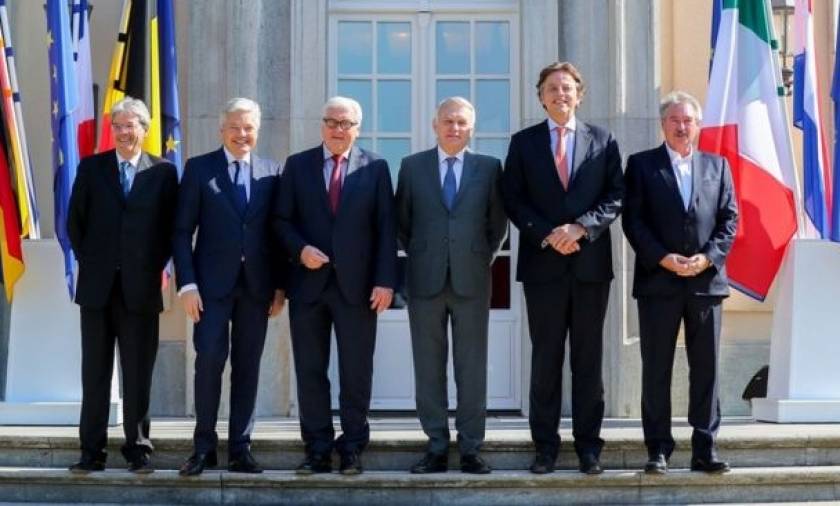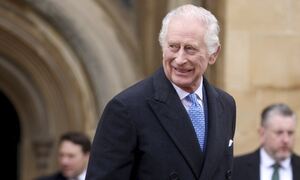Brexit referendum: EU must not fall into 'depression'

German Foreign Minister Frank-Walter Steinmeier says the EU must not fall into "depression and paralysis" after the UK voted to leave the bloc.
He made the comments arriving for an urgent meeting of the six EU founder members to discuss the decision.
They will consider the process and speed of Britain's exit, and are also likely to discuss how to dissuade others from doing the same.
Britain's Prime Minister David Cameron has said he will step down by October.
The six countries attending the talks in Berlin - Germany, France, Italy, Belgium, Luxembourg and the Netherlands - first joined forces in the 1950s and still form the core of the EU.
"We cannot rush headlong into hectic action, pretending we have all the answers, but after the British decision we also cannot fall into depression and paralysis," Mr Steinmeier said.
EU 'taken hostage'
The first summit of EU leaders with no British representation will be held on Wednesday, a day after Mr Cameron holds talks with members.
Global stock markets fell heavily on the news of the so-called "Brexit", where the UK voted by 52% to 48% to leave the EU. The value of the pound has also fallen dramatically.
Credit rating agency Moody's downgraded the UK's outlook to "negative" after the poll.
The UK must now invoke Article 50 of the EU Lisbon Treaty, which then allows for two years for withdrawal to be negotiated.
However, Mr Cameron said he preferred to leave negotiations to his successor.
European Commission head Jean-Claude Juncker said the EU-UK split was "not an amicable divorce", but nor had they had a "deep love affair". He said exit negotiations should begin immediately.
"Britons decided yesterday [Thursday] that they want to leave the European Union, so it doesn't make any sense to wait until October to try to negotiate the terms of their departure," Mr Juncker said in an interview with Germany's ARD television network.
In another interview, with Bild newspaper, he said it was "first and foremost" a matter for Britain's EU commissioner Lord Jonathan Hill to decide whether to stay in his role, in charge of EU financial services.
Also on Friday, European Parliament President Martin Schulz said the EU "as a whole was taken as a hostage" by infighting among Mr Cameron's Conservative party.
In all the years I've covered European politics, I've never seen this continent so Eurosceptic or the future of the European Union so uncertain.
The mood in Brussels is resentful and despondent, while governments across Europe are scared.
They feel the heat from angry electorates who share many of the criticisms of the EU highlighted during the UK referendum campaign.
That's why you've been hearing the words "EU" and "reform" of late from the nervous mouths of some you'd least expect, such as Germany's Angela Merkel, and Donald Tusk.
Because they're so worried, the EU is preparing to get tough with Britain over the terms and timing of a new trade relationship.
This is not about punishment - well, not much.
It's more a desire for the process to be painful to put others off exiting, while Europe's leadership tries to re-group and, perhaps, reform.
Source: bbc.com













